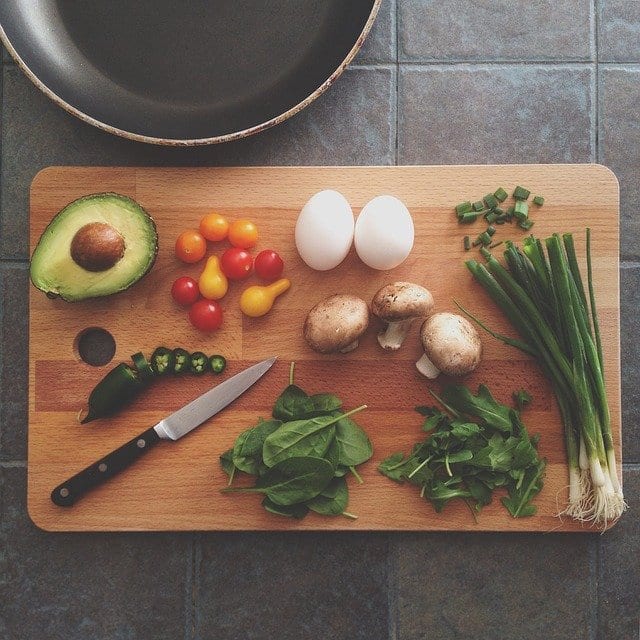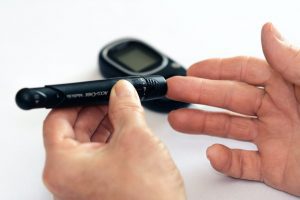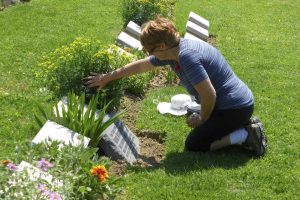Nutrition Advice For The Elderly – A Guide To Positive Well-Being

As we get older our body’s ability to absorb vitamins and other nutrients changes, impacting our energy levels, appearance and even our risk of illness. In order to sustain positive well-being in later life, be aware of the types of foods you consume and ensure you are getting all the nutrients your body needs while holding back on certain foods that could be hazardous to your health.
As part of a healthy diet, vitamins D, B12 and K have an impact on our well-being. This healthy-eating guide outlines why these vitamins are essential to a healthy, happy life.
Vitamin D Requirements For The Elderly
Low levels of vitamin D are quite common throughout the UK, as it is primarily absorbed through the skin from sunlight. The cause of vitamin D deficiency specifically in elderly people is because our ability to absorb this vitamin decreases as we age.
A lack of vitamin D in elderly people increases the risk of falls, cardiovascular disease, problems with our bones and cognitive impairment; severely impacting our well-being.
However, whilst the prescribed amount of vitamin D intake will help protect you from falls, too much vitamin D could also increase the risk; therefore you must not exceed the recommended daily dose.
The NHS recommends 10 micrograms of vitamin D a day and not to exceed more than 100 micrograms.
Vitamin D In Food
Food sources that are rich in vitamin D include:
- Oily fish such as herring, mackerel, salmon and sardines
- Egg yolks
- Red meat
- Fortified foods including breakfast cereals and fat spreads
Vitamin B12 Benefits For Elderly People
Vitamin B12 impacts your nervous system and helps to keep your blood cells healthy. A B12 deficiency can lead to anaemia resulting in:
- Fatigue and a lack of energy
- Feelings of faintness
- Headaches
- Pale skin
- and more.
A lack of vitamin b12 in the elderly will showcase itself in the same way it does for everyone else. Age UK recommends that adults consume approximately 0.0015mg daily.
Vitamin B12 In Food
A deficiency in vitamin B12 impacts approximately 1 in 10 elderly people aged 75 and above. To reduce the risk and symptoms associated with this deficiency, incorporate the following foods into your diet:
- Fish such as cod and salmon
- Dairy products including milk and cheese
- Fortified cereals
- Yeast extract
Vitamin K Requirements For The Elderly
Vitamin K assists with blood clotting which helps the healing of wounds. According to the NHS, there is also evidence that this vitamin helps our bones stay healthy.
A low intake of vitamin K is associated with increased risks of fractures and lower bone mass, which is a concern for a lot of elderly people. As we age we tend to exercise less which increases the risk of bone-related conditions such as osteoporosis. In addition to this, our bones tend to lose strength as we get older so ensuring you are absorbing the right level of vitamin K is essential for keeping your bones strong and maintaining a positive well-being.
Unlike other vitamins where the recommended daily dose is the same for everyone, the NHS recommends you consume around 1 microgram of vitamin K a day for every kilogram you weigh.
Vitamin K in Food
Small amounts of vitamin K are found in dairy foods and meats, but if you want to give you body a boost, eat foods like:
- Cereal grains
- Vegetable oils
- Green leafy veg like spinach and broccoli
Maintaining positive well-being by eating the right foods in later life is a simple, yet effective lifestyle choice. Ensure that you are checking the packaging of the food you buy to ensure you are getting the right amount of nutrients each day.
At Four Oaks Healthcare, we believe that everyone should be able to live their best life regardless of age. If you feel that you could benefit from care in the home, we can help.




